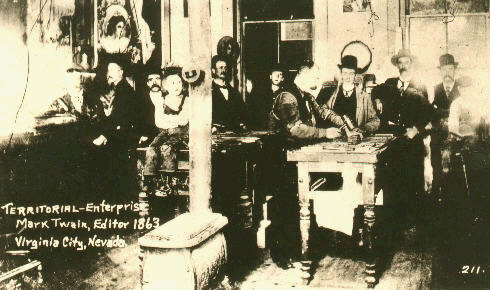I went to a fiction writing workshop in November at which the tutor, a university lecturer, insisted that “Very few good novels have been written by journalists”. I was astounded by this statement, but said nothing during the seminar, not wanting to be seen as adversarial or—as I am a university lecturer myself—as trying to be a know-it-all and trump the teacher.
I was offended, actually, because I am a former journalist and a published novelist, and I think I’m not bad at both.
Traditionally, many young people who want to be novelists have been steered into journalism as a way of making a living but still using their writing skills. It seems most journalists I know have a manuscript half-written or ambitions to write a novel.
Anyway, this got me thinking about great writers who also worked as journalists. Contrary to what the fiction workshop tutor said, there are many great novelist-journalists. What follows is a list of just a few that occur to me. They are in no particular order and they are eclectic: that is, some are world renowned, others are much lesser known; some are from a previous age and some are current; some are literary, some populist, some both.
Ernest Hemingway
Mark Twain (pictured above)
Geraldine Brooks
Graham Greene
Djuna Barnes
P G Wodehouse
Martin Amis
Willa Cather
Charles Dickens
George Orwell
Ruth Rendell
Will Self
Linda Grant
Tom Wolfe
Susan Kurosawa
In a recent article in the Guardian on this topic—specifically on the worth of Will Self’s work—Robert McCrum examines the cliché of the journalist as unable to write good fiction: “What lies behind this prejudice, of course, is the idea that fiction (and poetry) is a higher calling,” McCrum says. “Journalism is hack writing (it doesn’t have to be) and novelists dwell closer to the top of Mount Parnassus (well, occasionally).” Read the full article here.
A 2006 scholarly book on the subject, Journalism and the Novel, by Professor Doug Underwood, examines why so many journalists have aspired to fiction writing careers. I think it’s often the other way round: many people aspire to the seemingly more romantic and mystical calling of fiction writing first, then realise they have to make a living as well. That’s what happened to me. I was going to be a famous actor, playwright and novelist. However, making a living as a journalist is not wasted time, for journalism is a fascinating occupation that allows access to people and places that others don’t get, thus providing much material a novelist can use.
Just because someone works as a journalist doesn’t mean they can’t write good fiction: that’s faulty logic. Just because I once worked at McDonald’s, for example, doesn’t mean I couldn’t become a chef at a fine-dining restaurant; and just because I worked at Target doesn’t mean I couldn’t become a high-end fashion designer. Making a generalisation, as my erstwhile tutor did, can manifest simply as a prejudice with no evidence to support it.
So, my advice to anyone who thinks journalists can’t write impressive fiction is, read The Old Man and the Sea, Animal Farm, Huckleberry Finn, March, and The Quiet American, then get back to me.


Oh, yes, I read the message in this and agree wholeheartedly. There’s a good book in almost every journalist; in some cases, that’s where they should stay.
I agree with every word you have written. There are very different writing and thinking skills between journalism and fiction but I think journalism is a great background for fiction because of the diversity of people and situations you are exposed to, and the sheer discipline involved in journalism.
Another to add to the list is Evelyn Waugh (his Scoop is dated but still great).
Oh yes, that’s right. I haven’t read Scoop, but should. I am more familiar with the work of his brother, Alec Waugh, who wrote more than 40 books. I have Alec Waugh’s Bangkok Story of a City (1970). He wrote about eight novels. A. Waugh didn’t have to work as a journalist, though, as he married a wealthy Australian!
Add to the list Evelyn Waugh (his Scoop is dated but still great), says Annie Hall, who loves your blog.
Date: Sun, 23 Dec 2012 03:56:56 +0000 To: gordsoutofhere@hotmail.com
I agree! I was an English major with a journalism minor in college and my creative pieces tend to play at least as well as my features. Good writers are multifaceted.
You’re absolutely right. I think that idea that journalists are not creative is so outmoded. When I was at journalism school, on the first day the instructors asked who among us liked to write fiction and, with a shudder, worst of all, who liked to write poetry. Gingerly, a few brave souls (including me) raised our hands. We were told to gather all our creative writing, take it to the student magazine and leave it there. Today, if I have students who want to be journalists AND novelists, I applaud and encourage them.
DH Lawrence was a literary critic – is that not journalism?
Absolutely. Great example. I wonder what percentage of published novelists make or have made their living in journalism. I wonder what percentage of so-called literary writers have been journalists. I think it would be quite high. The more I think about that comment by the creative writing teacher, the stranger I find it. Perhaps I should email her and ask her what she meant! Perhaps it was just one of those things, said during a long seminar and perhaps not really meant.